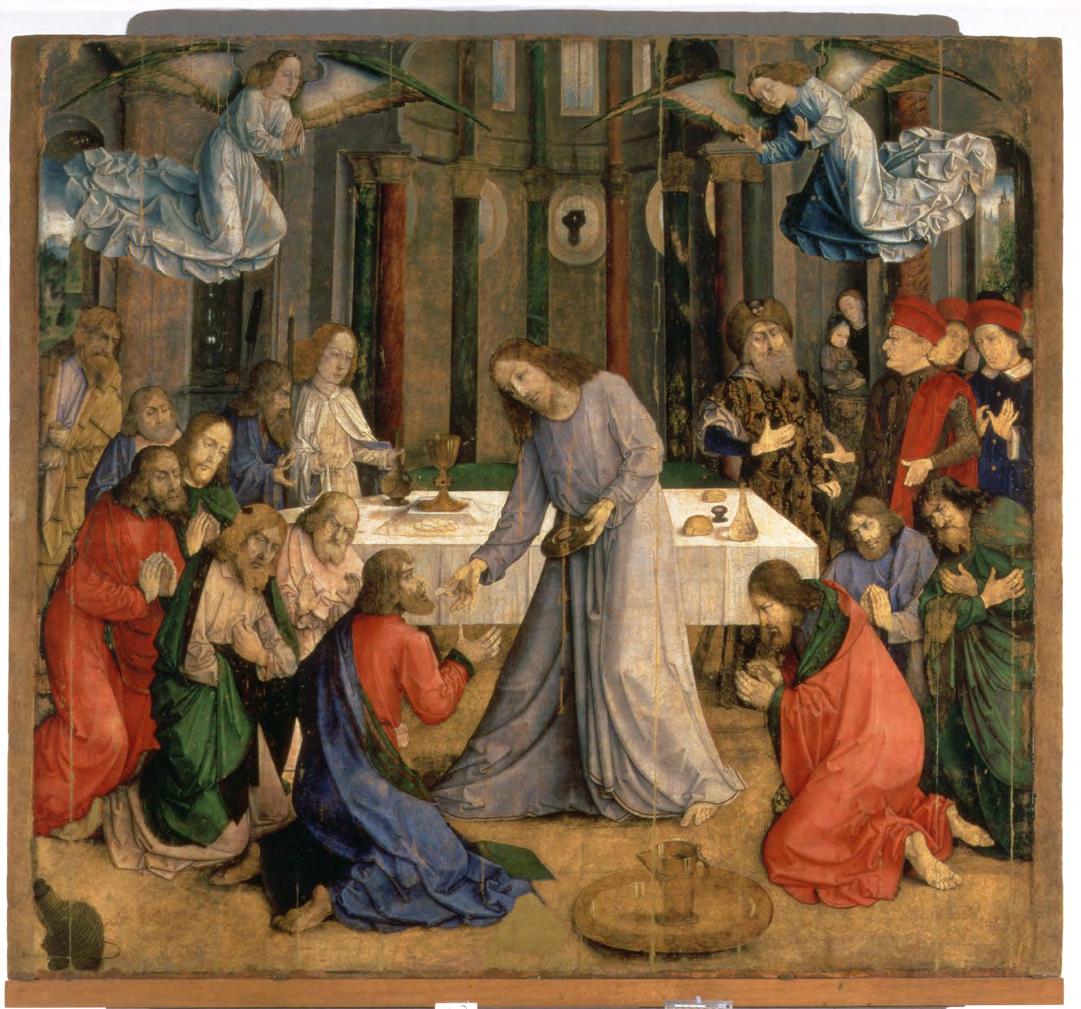
5 minute read
Family matters
You don't have to be happy all the time…
Timely advice from James Preece
I asked my wife what she wanted for her birthday; she told me: "Nothing would make me happier than a diamond necklace," so I bought her nothing. Nah, I'm kidding - we've been happily married for five years, the trouble is we got married seventeen years ago!
There are a lot of jokes about unhappy marriages – the contrast between our idealistic expectations and the reality of everyday life is fertile ground for humour which can be a way to vent frustrations and help us through hard times. The important thing is not to tell them in front of your wife - not a problem for me, she never lets me get a word in edgeways! Tee hee.
Of course, if the goal were simply to cheer ourselves up, we could tell jokes about anything. Jokes about marriage are popular because they serve another purpose - they are a way to say, “I’m struggling with this, is it just me?” and for others to say, “No it’s not just you, I struggle with that as well”. These jokes are a way to make a connection about something we might feel uncomfortable discussing in earnest. Finding marriage difficult? Don’t worry, you’re not alone.
Which got me thinking that maybe there should be more jokes about unhappy Christians. Jokes we can tell when we’re finding things difficult in our relationship with God. There’s only one problem with this plan - I can’t think of any. GK Chesterton said, “It is the test of a good religion whether you can joke about it”, and I can think of loads of jokes about the Catholic religion, about Priests, about Moses making his tea (Hebrews it) but none about how I’m trying to love God but I’m finding it really hard because honestly, He’s not living up to my expectations.
You know what God’s like, always not giving me that thing I wanted. Am I right?
Some things are too important to joke about. But I do think it’s important that we let each other know, somehow or other, that sometimes it’s hard, sometimes we struggle. I wouldn’t want anybody to feel that it’s just them on their own.
There’s a real danger in putting on an outward air of being happy all the time. I’m told that in “the bad old days” Catholics would turn up to Mass and pretend like everything is okay because in those days Catholicism was supposedly all about appearances. Then again, not long ago I heard a discussion about the choice of music at a Novus Ordo Mass. The Priest wanted to introduce some Gregorian Chant and somebody said “but Mass is supposed to be joyful!”.
Leaving aside the question of whether Gregorian Chant can be joyful (spoiler alert: it can) my point here is that modern day Catholicism is just as capable of putting on a show.
Now somebody might say that Christians are supposed to be joyful. It’s the Good News! Jesus died for our sins and Love wins the day. Our Lord was quite clear that we shouldn’t be worrying about tomorrow and the Bible tells us to “Rejoice in the Lord always”. James has no business going around bringing everybody down with his horrible jokes and miserable ways.
That’s not what St Thomas Aquinas says in the Summa (I-II:39) he tells us, “Supposing the presence of something saddening or painful, it is a sign of goodness if a man is in sorrow or pain on account of this present evil. For if he were not to be in sorrow or pain, this could only be either because he feels it not, or because he does not reckon it as something unbecoming, both of which are manifest evils. Consequently, it is a condition of goodness, that, supposing an evil to be present, sorrow or pain should ensue”.
Within this vale of tears, it is quite reasonable that we should struggle. Bereavement, worry, stress, depression, spiritual malaise, the dark night of the soul… just plain old frustration with a situation that is driving you up the wall. “Blessed are they that mourn, for they shall be comforted.”
So, what are we to do about our sorrow? Should we wallow in it and just be miserable? By no means! Aquinas has five suggestions (I-II:38) which are well worth giving a go.
Firstly, that “sorrow is driven forth by pleasure”. There is no specific mention of crisps or chocolate but I feel they are both strongly implied. Secondly, “a hurtful thing hurts yet more if we keep it shut up” “by tears or groans or even by words, their sorrow is assuaged”. Third, that “the sympathy of a friend should afford consolation”.
Fourth is the contemplation of truth, a tricky one this - “the contemplation of truth assuages pain or sorrow, and the more so, the more perfectly one is a lover of wisdom”. Alas, if only I were more perfectly a lover of wisdom for “in the midst of tribulations men rejoice in the contemplation of Divine things”.
Finally, one we can all get behind: Sleep and baths. “Whatever restores the bodily nature” he tells us, “is opposed to sorrow and assuages it.” So, if you are struggling, do something nice, have a good cry (or groan), call a friend, contemplate the Divine, take a bath and get an early night.
If none of that works - don’t beat yourself up. Everybody struggles sometimes.










